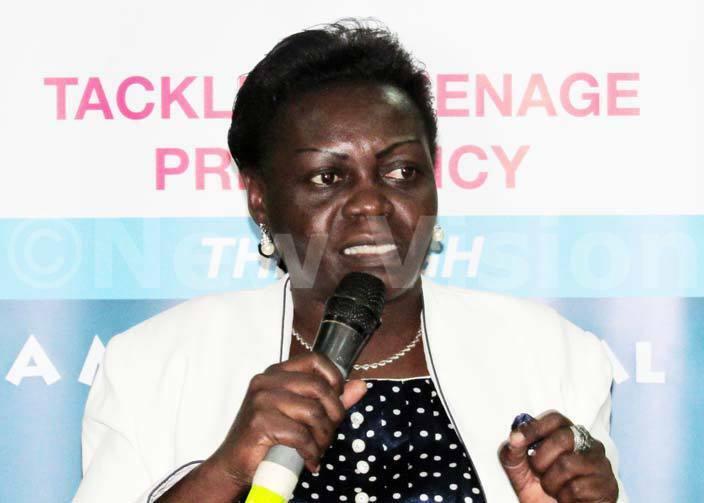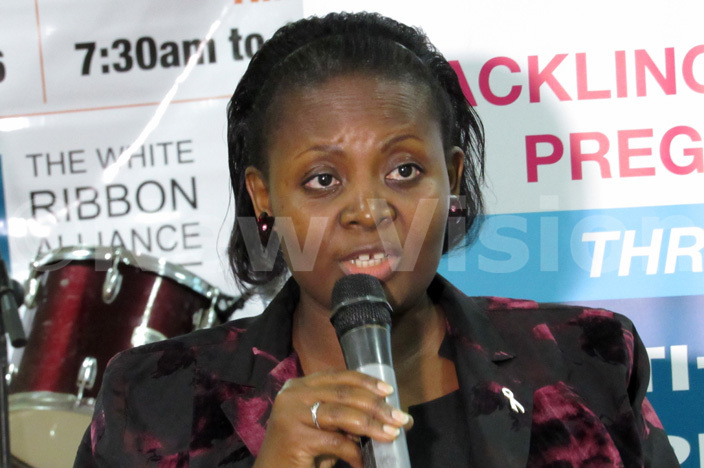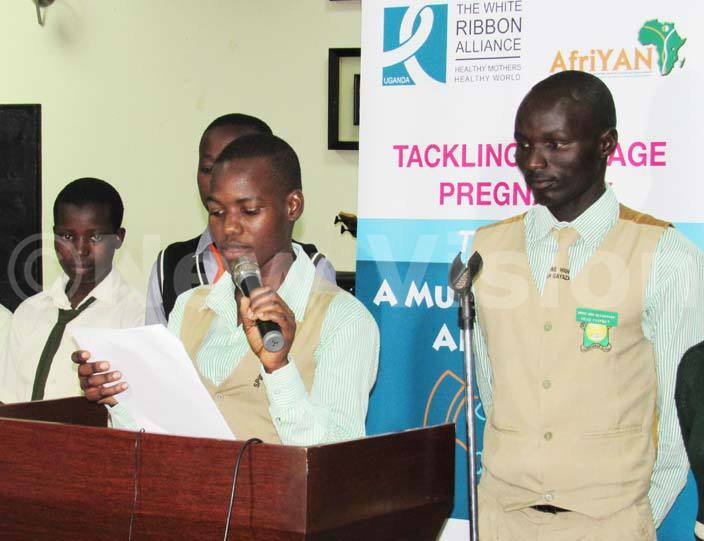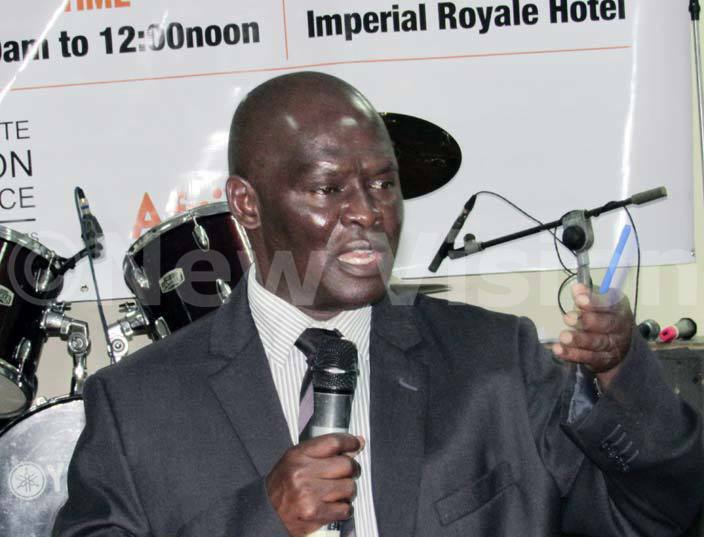Youth to government: Revisit our needs, fight teenage pregnancy
“The country loses about $1m to adolescent pregnancies. We would also be gaining about $15m as a country if all the teenage girls stayed in school and delayed pregnancy until about 20 years ...
PIC: Youth from the Naguru Teenage Center presenting their play on dangers of teenage pregnancy. Photos/ Solomon Kalema
With 78% of the country's population under the age of 30 and 55% of that below 18, teenage pregnancies pose a major threat to Uganda's development.
This was put across by Rt. Hon. Ruhakana Rugunda, the Prime Minister in a speech read by Sarah Opendi the State Minister for Health (General Duties) at a National Youth Dialogue organised by the White Ribbon Alliance at the Imperial Royale on Tuesday.
"Teenage pregnancies make young girls drop out of school. This may mean an end to their journey to development and economic independence for the girls and their children," the Prime Minister noted.
A challenge eating into national coffers
As revealed by Dr Jotham Musinguzi, the executive director of the National Population Council, the population of Uganda will continue to increase at a high rate.
Musinguzi, however, said the country can only gain from the big population if productivity is maintained through the protection of the youth against teenage pregnancy.
This effect on productivity was also reflected in the Prime Minister's message.
"The country loses about $1m to adolescent pregnancies. We would also be gaining about $15m as a country if all the teenage girls stayed in school and delayed pregnancy until about 20 years of age and became economically active. By addressing these pregnancieswe can reinvest this money into our economy," Rugunda noted.
 Sarah Opendi, State Minister for Health
Sarah Opendi, State Minister for Health
A cancer worth fighting
According to Cathy Mwesigwa, the vice-chairperson of the White Ribbon Alliance Board, four of every 16 women who die in the country every day from pregnancy-related complications are teenagers.
From Mwesigwa's explanation, the teenage mothers are also most likely to have babies who cannot live beyond their second birthday or die at birth.
These teenage pregnancies, according to Prof. Anthony Mbonye, the acting Director General of the Health Ministry, also keep many girls out of school and hinder their chances of getting proper education.
 Cathy Mwesigwa, the vice-chairperson of the White Ribbon Alliance Board
Cathy Mwesigwa, the vice-chairperson of the White Ribbon Alliance Board
Speaking in creative union
Kicked off by Robina Biteyi, the National Co-ordinator of the White Ribbon Alliance, this dialogue saw young students from secondary schools and youth centres countrywide presenting a petition to the Prime Minister.
The petition, which was handed over by one of the students and received by Opendi on the Prime Minister's behalf, is a call to government to initiate a joint fight by key government ministries against teenage pregnancies.
The young Ugandans also put together musical and theatrical performances to get their voices heard. Among these, was a play by youth from the Naguru Teenage Centre which painted the actual picture of the role of peer pressure in pushing young girls, particularly the materialistic girls, into early sex aimed at getting financial support from much older men.
 A student reading the petition on behalf of the youth
A student reading the petition on behalf of the youth
Government building response
In his message, the Prime Minister noted that government recognises the fight against teenage pregnancies as a means of making the targets of Vision 2040 achievable.
Rugunda hinted that as a way of gaining from the largely young population, the government has a strategy to achieve reduced fertility rates, increased investment in human capital and ensuring that girls complete school.
Opendi who attributed the high number of teenage pregnancies to the high addiction to alcohol and what she termed as "bad dressing" rallied all youth to focus and abstain from sex as much as possible and make use of contraceptives, which she described as a secondary option.
"You should use the contraceptives when you must," she said.
 Fred Onduri, the commissioner for Youth and Children Affairs in the Gender ministry
Fred Onduri, the commissioner for Youth and Children Affairs in the Gender ministry
In highlighting the arm of the government in the fight, Opendi assured the youth of the consideration of the First Lady Janet Museveni who is championing the fight against child marriages and Rebecca Kadaga the Speaker of Parliament who is championing the fight against teenage pregnancies.
Fred Onduri, the Commissioner for Youth and Children Affairs in the gender ministry, reminded the youth of 116, a toll free number set up by the Ministry for whistle-blowers to use in the fight against defilement and any forceful means by which young girls could get pregnant.